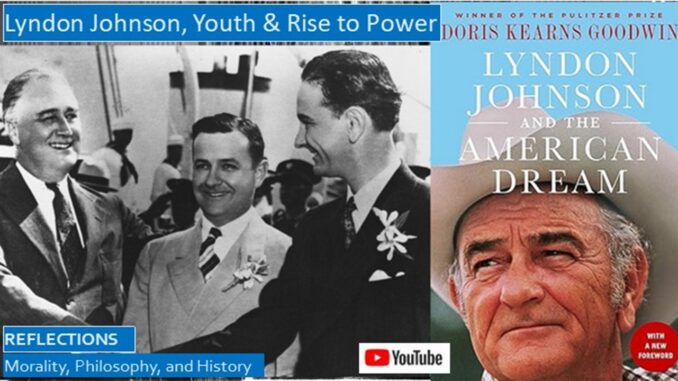
Today we will reflect on the youth of Lyndon Johnson, and his rise to power, as described in Doris Kearns’ award-winning biography. We ponder:
What events in his student years and his early years in Congress suggest that he would quickly rise through the leadership ranks?
How did his wife, Lady Bird Johnson, and her family fund his early campaigns? How did her family help them purchase the radio station that she managed, that made them millionaires?
During the Depression, how was LBJ able to attract the attention of both Eleanor Roosevelt and FDR? How did this help in his rise to leadership?
YouTube video for this blog: https://youtu.be/hBYD1yDo9eE
YouTube Script with more book links:
https://www.slideshare.net/slideshows/lyndon-baines-johnson-youth-schooling-and-rise-to-power/266198994
YOUTH AND SCHOOLING OF LYNDON JOHNSON
When his biographer Doris Kearns was bouncing up and down in his pickup truck as Lyndon managed his Texas ranch in his retirement, he told her many recollections of his past, his rise to power, his years in Texas, and his childhood years on his ranch.
Lyndon remembered: “I still believed my mother was the most beautiful, sexy, intelligent woman I had ever met, and I was determined to recapture her wonderful love, but not at the price of my daddy’s respect.” “I was going to reach beyond my father. I would finish college; I would build great power and gain high office. Mother would like that. I would succeed where her own father had failed; I would go to the Capitol and talk about great ideas. She would never be disappointed in me again.”
His mother Rebekah was ambitious herself, but his father was nothing more than a small-time farmer and trader, dabbling in local politics, winning a seat in the Texas legislature. When she saw her son’s promise, she channeled her unrealized ambition into her talented son. When he flagged, when he disappointed her, she would sometimes withhold her affection, giving him the silent treatment, behavior he himself would later exhibit in his rise to power.
Though he was closer to his mother, as most children are, Lyndon also admired his father. He had principles, he stood up for unpopular positions, he fought the influence of the Ku Klux Klan, he fought to improve the lives of the common folk as best he could.
Rebekah realized early in her marriage that Lyndon’s father was not open to intellectual discussions. She compensated for this by showering attention on Lyndon, who “learned the alphabet before he was two, learned to read and spell before he was four, and at three could recite long passages of poetry from Longfellow and Tennyson.” Lyndon remembered, “I’ll never forget how much my mother loved me when I recited those poems. The minute I finished she would take me in her arms and hug me so hard that I sometimes thought I would be strangled to death.”
But later Lyndon was never comfortable around intellectuals, seeing school as a necessary stepping-stone to a successful career. His mother tried to interest him in the Debate Club in high school, but he was not interested, he was always better at persuading people one or two at a time, after learning their personal perspectives and interests. Lyndon never liked reading for its own sake, he preferred reading histories and biographies.
As he grew older, Lyndon drew closer to his father, enjoying his company as he campaigned among his rural neighbors, often coming home with freshly baked bread and other home-cooked dishes. William Jennings Bryan’s populist movement had been popular among the farmers, his father admired the Bull Moose Progressives led by Theodore Roosevelt and Woodrow Wilson’s New Freedom. The Civil War was in living memory, there were elderly veterans from that war, and more attention was paid in school to the great orators Daniel Webster and Henry Clay who preached their devotion to the Union. There was also pride in the history of how Sam Houston led the short-lived Republic of Texas first to gain independence after the fated Battle of the Alamo, and then to join the Union before the Civil War, although Texas was one of the Southern states that later seceded to join the ill-fated Confederacy.[1]
LBJ later told Doris Kearns, “I never had any bigotry in me. My daddy wouldn’t let me. He was a strong anti-Klansman.” “The Klan controlled the state when I was a boy. They threatened to kill my dad several times.”[2]
COLLEGE AND TEACHING YEARS
Doris Kearns tells us the entertaining story of how, in college, he became the assistant to Cecil Evans, the college president, and eventually shifted the control of the student government from the jocks to the intellectuals through tireless campaigning, door knocking, and listening to his fellow student’s aspirations, which foreshadowed his rise in the Senate many years later.
Lyndon wrote in the school paper: “What you accomplish in life depends almost completely upon what you make yourself do.” “Perfect concentration and a great desire will bring a person success in any field of work he chooses. The very first thing one should do is to train the mind to concentrate upon the essentials and discard the frivolous and unimportant.”
Lyndon wrote in a school paper editorial:
“The world today is looking for men who are not for sale;
Men who are masters of themselves and their tempers;
Men who place principle above all else;
Men who are honest and true;
Men who love work and the contentment it brings;
Men who are willing to lose sight of self, ease, and pleasure in the effort to serve others.”
LBJ continues, “Duty drives devotees with a relentless hand through trials that seem intolerable. No labor is too arduous for Duty to exact, no sacrifice too great for her to demand, no service beyond her command.” Kearns writes, “His mother Rebekah insisted that, in politics, the true gentleman always proceeded with the most splendid of motives in pursuit of the highest ideals;” “every action should be for the common good and public benevolence demonstrating a Christian spirit.”
On the recommendation of Cecil Evans, the college president, Lyndon spent nine months as the school principal of an elementary school in Cotulla, Texas. Three-quarters of the residents were Mexican, few spoke English, all struggled to survive in a dry and treeless land.
Johnson said he was determined to improve the “lives of those poor little kids. I saw hunger in their eyes and pain in their bodies. Those little brown bodies had so little and needed so much. I was determined to spark something inside them, to fill their souls with ambition and interest and belief in the future.” He spent half of his first month’s salary on softball bats and gloves, basketballs, and volleyballs. He helped coach their teams and their debating clubs. But these activities ceased soon after he left to teach high school for the next year.
LYNDON LEAVES TO WORK IN WASHINGTON, DC
After a local politician asked him to successfully manage his campaign for the Texas legislature, he recommended Johnson for a staff position for Richard Kleberg, an incoming Congressman. He would spend nearly two decades in Washington, moving up to the pinnacle of the ladder.[3]
When he arrived in Washington, he rented a room in the Dodge Hotel, as did many other Congressional assistants. In the first few weeks, he took multiple showers and brushed his teeth multiple times to meet as many of his neighbors as possible, so he could pick the shrewdest and most informed to be his teachers.
Richard Kleberg was more interested in the Washington social scene than his official functions. This gave Lyndon great latitude in running the office, addressing concerns of his constituents, resolving whatever difficulties they faced in their dealings with the various federal bureaucracies, often working weekends and eighteen-hour days. Kleberg’s office gained a reputation for zealously lobbying the federal bureaucracy to protect the interests of his constituents, solving their problems.
Lyndon had a knack for transforming menial posts into politically influential positions. He volunteered to be a Democratic doorkeeper, which previously was filled by teenage relatives of Congressmen. The doorkeeper would bring cards from visitors to Congressmen on the House floor. He used this post to observe the give and take of congressional actions, to learn the practical aspects of the House rules, and to converse and build relationships with other Congressmen.
The legislative secretaries, or aides of the Congressmen belonged to a discussion group called the Little Congress. He intensely lobbied the aides to become the youngest Speaker of this discussion group, proposing that they invite more interesting speakers to their meetings, enhancing the group’s influence on the Hill.
On a short trip to Austin, Texas, LBJ met Claudia Taylor, who had graduated from the top of her class, earning a degree in journalism. She was sharp, she was shy, she was sensitive, and best of all, absolutely dependable. He suggested that they have breakfast the next morning, followed by a drive in the country. He was very open about his “teaching, his salary as a Congressional secretary, his ambitions,” and about his family, especially his mother, whom he opined would love to meet her. Claudia agreed, so he immediately changed course to drive her to the ranch. His mother Rebekah adored Claudia.
A week later, she introduced Lyndon to her father and family. Her father had risen from humble circumstances to become a successful businessman. Her father took her aside to tell her, “Daughter, you have been bringing home a lot of boys. But this time you have brought home a man.” They were married within the month, she is better known by her nickname, Lady Bird Johnson.
Like Rebekah, Lady Bird was as strong woman. Soon after World War II ended, Lyndon heard that a small local bankrupt radio station was up for sale. Lady Bird’s father lent them the money to buy the station, which Lady Bird ran in a day when it was unusual for women to run businesses. She ran the station prudently; the radio station made them millionaires. No doubt Lyndon’s political influence smoothed the way over regulatory hurdles, but Kearns reports that there is no indication that he actively intervened in the government’s oversight of her business.
Lyndon ensured his quick rise to power by quickly reacting to opportunities. Kearns tells us that in June 1935, “President Roosevelt created, by Executive Order, the National Youth Organization., to provide jobs for hundreds of thousands of young people forced out of work or school during the Great Depression.” The afternoon after the order was signed, Lyndon phoned Sam Rayburn and other contacts in the House to have him appointed Director of the Texas NYO.
Lyndon saw this as an opportunity to build a constituency for a future Congressional campaign. With his characteristic energy, he crisscrossed the state of Texas, speaking to hundreds of government and business officials to collaborate on jobs for young people, providing materials, housing, and supervision for the government funded jobs. Within six months, eighteen thousand Texan youths were put to work in a variety of jobs. When Eleanor Roosevelt visited Texas, she wanted to meet this brilliant young man she had heard so much about.
LYNDON JOHNSON, TEXAS CONGRESSMAN
Lyndon did not have long to wait. One afternoon, he saw the headlines announcing that his Congressman Buchanan had died. Immediately he discussed this with Lady Bird, her father agreed to donate ten thousand dollars to his campaign, a handy sum during the Depression. Several days after his funeral, Lyndon announced his candidacy to the residents of Johnson City.
Lyndon campaigned feverishly for forty-two days, visiting every village in the district, shaking hands with everyone he met, even farmers plowing their fields, speaking wherever he could. But in the last week of the campaign, he developed severe stomach pains. He had appendicitis, he learned of his landslide victory in his hospital bed.
Shortly after his election, LBJ was invited to meet President Roosevelt who was on a cruise in the Gulf of Mexico. LBJ talked to FDR like they were old friends, talking about naval matters, since LBJ knew the President had formerly been the Assistant Secretary to the Navy. FDR told him to call Tom Corcoran, his aide, who paved the way for his assignment on the coveted House Committee on Naval Affairs. LBJ used his easy access to the White House to lobby for several WPA projects and to bring electrical power to rural areas of Texas.
Then the senator from Texas passed away, and once again LBJ vigorously campaigned for the vacant Senate seat. But this time he faced stiffer opposition; he lost narrowly by only thirteen hundred votes. This was an impressive showing for a new Congressman.
Five months later, the Japanese attacked Pearl Harbor, drawing the United States into World War II. The next day LBJ enlisted in the Navy. He earned the Silver Star, but a year later, FDR ordered that all Senators and Congressmen in the Armed Forces return to Capitol Hill. LBJ later exclaimed, “From my experience in World War II, I learned that war is caused by a lust for power by a few evil leaders and by a weakness on the part of the people whose love for peace too often displays a lack of courage that serves as an open invitation to all the aggressors of the world.”
CONTROL OF HOUSE, SENATE, AND PRESIDENCY
When reflecting on LBJ’s political career, it is helpful to know when the Democrats and Republicans were in control of the Presidency and both houses of Congress. For most of the years LBJ served in public office, the Democratic Party controlled Congress and the Presidency. However, the Democrats temporarily lost control of the House and Senate in the mid-term elections after Truman became President when FDR died, but they regained control of both houses when Truman unexpectedly beat Dewey in the 1948 elections, even with Southern Democrats running a third-party Dixiecrat candidate opposing civil rights. The Republicans regained control of both the Senate and the House when Eisenhower was elected President in 1952, but Democrats regained control of both houses of Congress during Eisenhower’s midterm elections in 1954. The Democrats retained control of Congress for many years afterwards, including during the Nixon Presidency.
| Description | Year | Office | Democrats | Republican | Other |
| LBJ Elected to House 1937 | 1938 | House | 262 | 169 | |
| FDR Third Term in office | 1940 | Presidency | 449 | 82 | |
| FDR Fourth Term, Truman President in 1945 | 1944 | Presidency | 432 | 99 | |
| Midterm elections were seen as referendum on Truman | 1946 | Senate | 45 | 51 | |
| Midterm elections were seen as referendum on Truman | 1946 | House | 188 | 246 | |
| LBJ Elected to Senate | 1948 | Senate | 54 | 42 | |
| Truman Reelected, Southern Democrats formed third party | 1948 | Presidency | 303 | 189 | 39 |
| LBJ elected as whip, 1951, Senate Minority Leader 1953 | 1952 | Senate | 47 | 49 | |
| Democrats lost their House majority | 1952 | House | 213 | 221 | |
| Republican General Eisenhower elected President | 1952 | Presidency | 89 | 442 | |
| LBJ Senate Majority Leader, January 1955 | 1954 | Senate | 48 | 47 | 1 |
| Democrats regained majority, Supreme Ct Brown decision against segregation | 1954 | House | 232 | 203 | |
| Eisenhower reelected as President, Nixon Vice President | 1956 | Presidency | 73 | 457 | |
| Democrats retain majority | 1956 | Senate | 49 | 47 | |
| Democrats retain majority | 1956 | House | 234 | 201 | |
| JFK and LBJ VP defeats Nixon. LBJ becomes President in 1963 | 1960 | Presidency | 303 | 219 |
(Source: Wikipedia Presidential, House, and Senate elections)
LYNDON JOHNSON, SENATOR FROM TEXAS
In 1948, the other Texas Senator resigned. LBJ campaigned with his usual manic vigor, and in the final week of this campaign, he was hospitalized for kidney stones. With the help of his campaign manager John Connally, he won the seat by only eighty-seven out of nine-hundred thousand votes, earning him the nickname, Landslide Lyndon.[4]
The freshman Senate class of 1948 was exceptional, it also included Hubert Humphrey, Estes Kefauver, and Russell Long of Louisiana, son of the popular populist Kingfish, Huey Long.
Kearns writes, “Power in the Senate had been exercised since 1937 by an informal coalition of conservative Republicans and Southern Democrats, in which, during the Truman years, the conservative Republicans agreed to vote with the South against civil rights legislation if the Southern Democrats voted against Truman’s social and economic legislation.”
Since his constituency was conservative, LBJ felt compelled to vote with this informal coalition most of the time. Since he did support some civil rights endeavors, he declined to join the Southern caucus of twenty-two Southern Senators, unwilling to be branded as a conservative. He showed deference to the Senate leaders, rarely speaking out against the majority positions. Although he began as one of the least well-known Senators, within three years LBJ was elected party whip, part of the leadership of the Senate.[5]
After he was elected to be Senate Minority Leader, Johnson was in his element, he excelled in bargaining with individual Senators, he was able to build a profile on each one, learning who their constituencies were, their political positions and aspirations, what was their deeply held beliefs and convictions. He was one of the most effective Senate leaders in history. Although Eisenhower was easily reelected in 1956, the Democrats won back control of both the House and the Senate during the 1954 midterm elections, making LBJ the Senate Majority Leader.
LBJ could be quite convincing, two journalists describe how intense he could be: “The Treatment could last ten minutes or four hours. It came, enveloping its target, at the Johnson Ranch swimming pool, in one of Johnson’s offices, in the Senate cloakroom, on the floor of the Senate itself: wherever Johnson might find a fellow Senator within his reach. Its tone could be supplication, accusation, cajolery, exuberance, scorn, tears, complaint, and the hint of threat. It was all of these together. It ran the gamut of human emotions. Its velocity was breathtaking, and it was all in one direction. Interjections from the target were rare. Johnson anticipated them before they could be spoken. He moved in close, his face a scant millimeter from his target, his eyes widening and narrowing, his eyebrows rising and falling. From his pockets poured clippings, memos, statistics. Mimicry, humor, and the genius of analogy made The Treatment an almost hypnotic experience and rendered the target stunned and helpless.”[6]
Like any good congressional leader, LBJ would not permit a bill to hit the floor of the Senate, let alone debate the issue, before he knew how the Senators would vote, which led many in the press to accuse him of manipulation and corruption because the process seemed opaque. This consultative style also helped him negotiate with a popular Republican President. Previously FDR governed during the war as a bipartisan president, even appointing a Republican to his Cabinet, this bipartisan spirit persisted under the Eisenhower administration.
Johnson complained to Kearns that all this “fuss about democracy and procedure had nothing to do with my leadership and everything to do about liberal’s need to criticize. First, they tell me they want a strong leader in the Senate so they can get results. So, I give them leadership and I get results. Then they change their tune, and say that what they really want is democracy, and participation, and decentralized leadership.” Kearns notes that “to Johnson debate could involve issues of principle, such as to assist the blacks or restrain the unions, but not the method to achieve results.”
A year after LBJ was selected to be the Senate Minority Leader, the Supreme Court in 1954 handed down its landmark decision, Brown v Board of Education, which mandated that public schools be desegregated with “all deliberate speed.” This oxymoronic phrase was used since the court knew that many in the South would resist desegregating their schools.
The Republican President Eisenhower reluctantly supported various civil rights issues. He dispatched federal troops to enforce the desegregation of the schools in Little Rock, Arkansas. When Governor Orval Faubus opposed the enforcement of the Supreme Court Brown decision, the general in Eisenhower could not tolerate this insubordination. The defiant and often violent reaction of Southerners was one reason the Democrats increased their control of the House and Senate in the 1956 elections.
When Governor Faubus attempted to use the Arkansas National Guard to block black students from attending Little Rock Central High School in 1957, Eisenhower then federalized the state’s National Guard, and instead used them to protect the black students chosen by the NAACP to attend the high school.
LBJ believed that normally the President should take the lead in proposing major legislation, and Eisenhower’s Attorney General convinced him to submit the Civil Rights Act to Congress. Kearns tells us that this bill had three provisions:
- “The creation of a Civil Rights division within the Justice Department.
- Gave the Justice Department authority to intervene on behalf of individuals whose civil rights were being violated in housing, education, voting, or law enforcement.
- Appoint a Civil Rights Commission to recommend further legislation.”
Previous civil rights bills over the past two decades were strangled in Congress by the Southern Senators and Congressmen who controlled the major committees through their tenure, and this civil rights bill was initially delayed. However, political pressure during and after the 1956 elections, coupled with the persistent lobbying by Lyndon Johnson, finally saw the passage of the Civil Rights Act of 1957. Many in the press gave Lyndon Johnson credit for the passage of this bill. Although this was not a comprehensive civil rights bill, it was an excellent beginning.[7]
Next, we will reflect on how LBJ was chosen to be John F Kennedy’s Vice President, ascending to the Presidency a few years later after the assassination of JFK. We will reflect on how he shepherded the Civil Rights and Great Society legislation through Congress, and how the Vietnam War damaged his legacy.
Presidency of Lyndon Baines Johnson, Civil Rights, Great Society, and Vietnam War
https://seekingvirtueandwisdom.com/presidency-of-lyndon-baines-johnson-civil-rights-great-society-and-vietnam-war/
https://youtu.be/lydW8mfpJGQ
DISCUSSING THE SOURCES
Doris Kearns’ biography, Lyndon Johnson, An American Dream, was part autobiography, because one of her main sources were her notes of the hundreds of hours she interviewed him after his retirement when she lived at his ranch during her school breaks and summers, both soon after he awoke early in the morning, and bouncing in his pickup truck as he looked after his sprawling ranch.
Freud was more in vogue in the Seventies, she was part amateur psychoanalyst, although she suspected he may have manufactured some of the dreams he claimed to experience that she recounts in the book.[8] His mother truly played an outsized role in his life, and her psychological speculations are backed up by perhaps the largest number of personal interviews any modern biographer has heard. Doris Kearns later married; she is now Doris Kearns Goodwin.
[1] Doris Kearns Goodwin, Lyndon Johnson & the American Dream (New York: Signet Book, 1976), Chapter 1, Growing Up, pp. 21-48.
[2] Doris Kearns Goodwin, Lyndon Johnson & the American Dream, Chapter 8, The Great Society, p. 241.
[3] Doris Kearns Goodwin, Lyndon Johnson & the American Dream, Chapter 2, Education and the Dream of Success, pp. 49-71.
[4] Doris Kearns Goodwin, Lyndon Johnson & the American Dream, Chapter 3, The Making of a Politician, pp. 72-106.
[5] Doris Kearns Goodwin, Lyndon Johnson & the American Dream, Chapter 4, Rise to Power in the Senate, pp. 107-140.
[6] https://en.wikipedia.org/wiki/Lyndon_B._Johnson referencing Rowland Evans and Robert Novak, Lyndon B. Johnson: The Exercise of Power (New York: New American Library, 1966), p. 104.
[7] Doris Kearns Goodwin, Lyndon Johnson & the American Dream, Chapter 5, The Senate Leader, pp. 141-166 and https://en.wikipedia.org/wiki/Brown_v._Board_of_Education and https://en.wikipedia.org/wiki/Civil_Rights_Act_of_1957 and https://en.wikipedia.org/wiki/Little_Rock_Nine .
[8] Doris Kearns Goodwin, Lyndon Johnson & the American Dream, Chapter 1, Growing Up, p. 43.

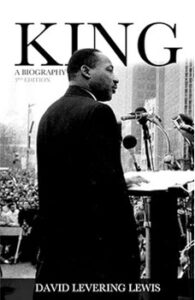
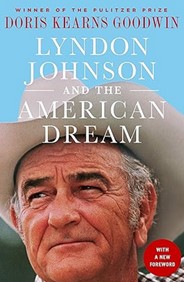
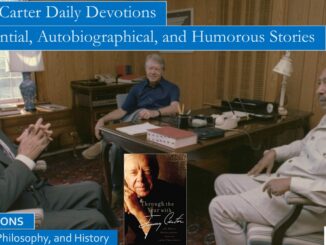

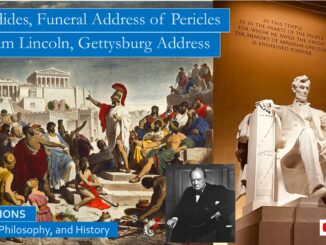
3 Trackbacks / Pingbacks